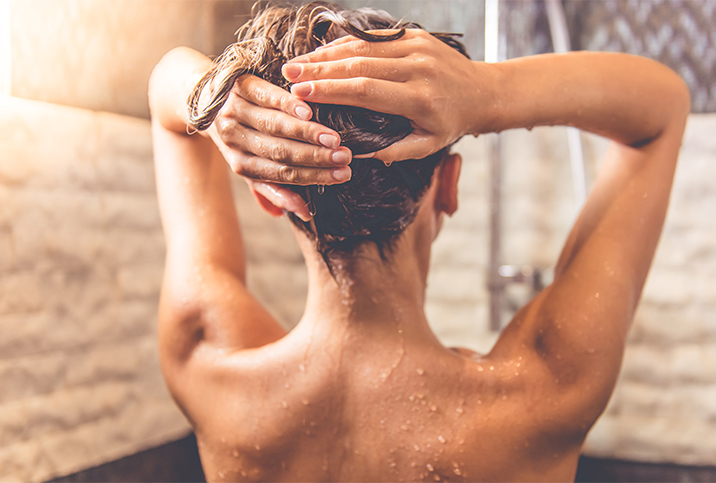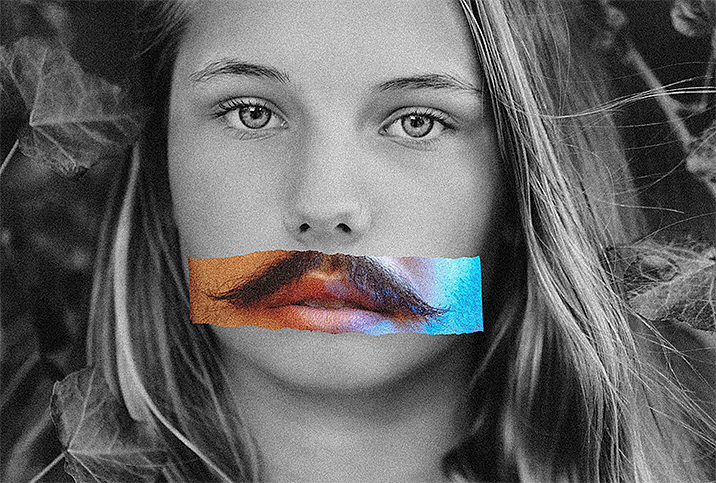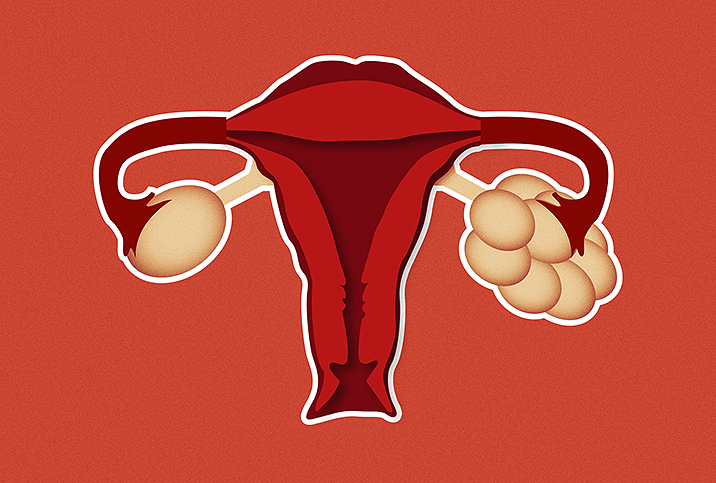How PCOS Affects Your Hair and What You Can Do About It

Loose strands of hair falling out in the shower is normal, but when hair loss exceeds the usual amount, it can be deeply upsetting. Unfortunately, this is a reality that some women with polycystic ovary syndrome (PCOS) live with daily.
With PCOS, the ovaries produce more than the normal amount of the male sex hormone androgen, resulting in numerous fluid-filled cysts in the ovaries. Symptoms of PCOS include abnormal menstruation, acne, infertility and issues with hair.
This hair condition, referred to as androgenic alopecia (AGA) or female-pattern hair loss (FPHL), strikes a blow to a woman's self-image and self-esteem, said Felice Gersh, M.D., an OB-GYN in Irvine, California. It is similar to male-pattern baldness and occurs in women who have PCOS or a family history of hair loss, or because of aging or certain medications. Hair loss also occurs among women with congenital adrenal hyperplasia and other conditions where an excess of male sex hormones flows through their bloodstream.
Gersh said hormonal changes such as the drop in estrogen levels during perimenopause, thyroid issues, anemia, nutritional imbalances, medication and environmental factors can worsen the condition.
PCOS can cause either hair loss or excessive hair
The hormonal imbalances caused by PCOS can have varying effects on women's hair. The condition can lead to thinning hair in some women and excessive hair in others. Excessive hair growth, also called hirsutism, occurs in 80 percent of women with PCOS.
"When testosterone, a male hormone, becomes elevated, it converts to DHT. DHT is a male hormone that binds to the hair follicle, making it inactive, resulting in hair thinning or hair loss," said Elizabeth Osorno, M.D., a Chicago-based physician and registered dietitian who specializes in PCOS. "Insulin resistance may play a role as well, as insulin stimulates the production of androgens in the ovaries."
Hair loss as a symptom of PCOS is less common than hirsutism and, therefore, underresearched. A small 2020 study suggested that 8 percent of women diagnosed with female pattern hair loss reported a known PCOS diagnosis. However, multiple studies have indicated that PCOS is underdiagnosed, so it's possible more hair loss cases are related to the condition than currently known.
Medical treatments for PCOS-related hair loss
Treating hormone-driven hair loss is often challenging. Still, many pharmaceutical preparations have been proven to work in halting hormonal hair loss in its tracks:
Ethinyl estradiol + cyproterone acetate
The combination of cyproterone acetate, a powerful progestin and antiandrogen, with ethinyl estradiol, a form of synthetic estrogen, blocks the binding of active androgen at the receptor site of a person's hair follicles. In addition, it prevents androgen from synthesizing in the ovary and mitigates the release of luteal hormones by the pituitary gland.
Oral contraceptives
For hormonal hair loss, oral contraceptives are paired with spironolactone, a diuretic. They do little to alleviate alopecia on their own, but when used simultaneously, they suppress androgen production in the ovaries and, to some extent, the adrenal glands.
Multiple drug therapy
Drug therapy involves the use of several antiandrogens and oral contraceptives, usually a mix of spironolactone and 5-alpha reductase inhibitors. It is a modality prescribed for severe androgenic alopecia.
Minoxidil
Minoxidil, a popular over-the-counter hair grower, is usually considered for the treatment of androgenic alopecia in its early stages. It can be used on its own or in tandem with any of the previously mentioned treatment options.
Self-care techniques to control PCOS hair loss
Aside from medical treatment, women can try several self-care techniques to help manage PCOS hair loss.
Proper nutrition and diet
Eating a balanced diet can help manage insulin levels. Increasing fiber intake can help improve insulin resistance and inflammation, Osorno explained.
"A great way to increase fiber intake is by adding more whole grains and veggies into your diet," she said. "Chia seeds are fantastic. Adding nuts and seeds into your diet can also be beneficial in reducing testosterone levels in women with PCOS. Spearmint tea has been shown to have antiandrogenic effects in PCOS and can reduce hair loss."
Exercise
Regular physical activity can help reduce androgens and improve insulin resistance. A daily 30-minute walk can do wonders for PCOS. Stress can compound some PCOS symptoms, and even light exercise can reduce stress and alleviate some discomfort.
Weight loss
While PCOS can make weight loss difficult, losing 5 percent to 10 percent of your body weight can significantly lower insulin levels and help improve PCOS symptoms.
Hair care
Properly washing and rinsing your hair daily can keep dirt and sebum, which can lead to follicle damage, from accumulating. Using conditioner and a wide-tooth comb can prevent tangles and keep ends from splitting.
Additionally, don't pull your hair too hard or tie it back tightly with elastics.
Supplements
Osorno said supplements such as vitamin D and zinc can help boost the effects of lifestyle changes. Vitamin D deficiency has been associated with hair loss. A multivitamin may help.
When to seek help for PCOS hair loss
Some people may dismiss hair loss as a non-life-threatening condition. However, hair loss can have serious consequences for self-esteem if left untreated. If you suspect PCOS is driving your hair loss, making an appointment with your doctor to get your hormone levels tested is an essential first step.
Additionally, it's important to build a healthcare team that supports you and makes you feel heard and understood. The team can help guide you through all the stages and symptoms of PCOS.
Editor's note: These statements have not been evaluated by the Food and Drug Administration. Our medical experts advise that you consult with your primary healthcare provider before you begin using a supplement. This information is not intended to diagnose, treat, cure or prevent disease.


















